School education for socially disadvantaged children (Ceres)
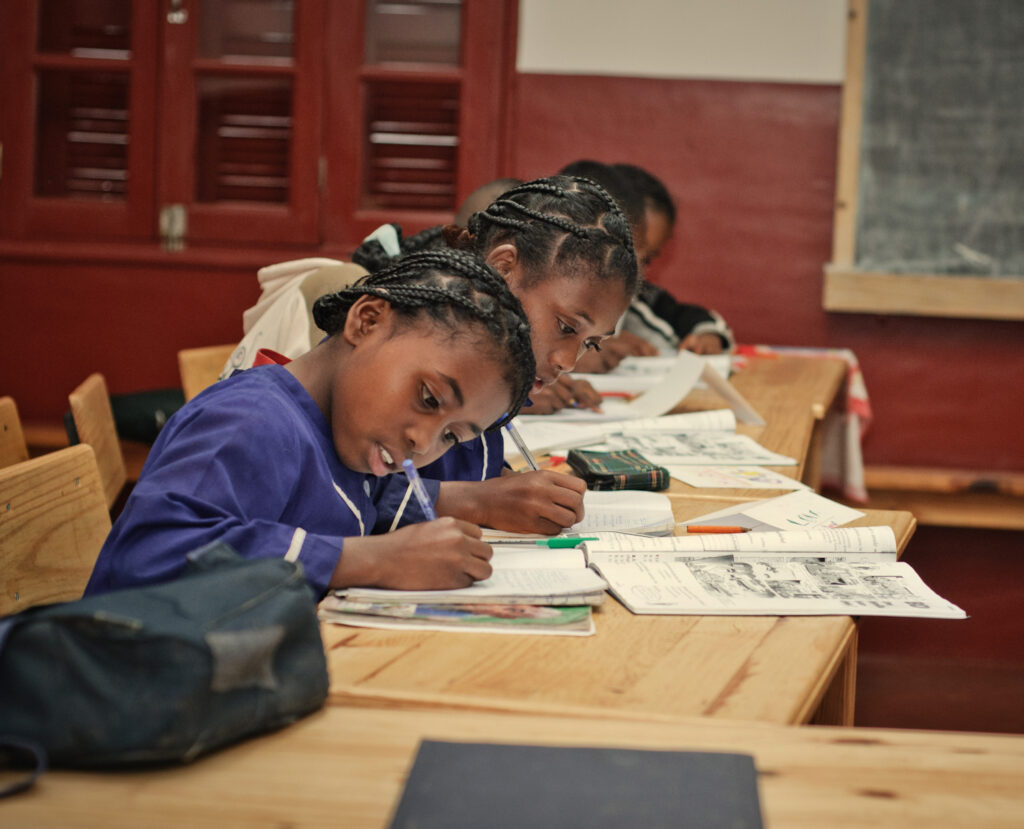
Madagascar The “Ceres” program supports the poorest children and youth from rural areas of Madagascar on their path to higher education. The aim is to provide about 600 promising adolescents with solid elementary education every year and to prevent them from dropping out of school. The Ceres schools are spread over five villages in the Haute-Matsiatra region in central Madagascar. Boarding is available at all five locations for 200 children who live too far away from the schools. The project also offers educational support to several rural high schools. Evaluation of the project shows that 80 percent of participating secondary school students successfully completed compulsory education. The national rate, by comparison, is 40 percent. 94 percent of students who continue to high school successfully graduate. In addition, the exam results of Ceres students are significantly better than the national average. The vocational preparation and the higher educational level of Ceres students make them more attractive to local companies and better able to find a job that earns enough to support them independently. Local partner: Association Promes and Institut Européen de Coopération et de Développement (IECD) MORE PROJECTS Scholarships for children from low-income families Scholarships for children from low-income families Peru, Argentina, El Salvador, Guatemala, School education Integration of former child soldiers into society Integration of former child soldiers into society Colombia, School education Saberes Saberes Colombia, School education Higher education for socially disadvantaged youth (Sesame) Higher education for socially disadvantaged youth (Sesame) Madagascar, School education Micro Enterprise Development for Women Micro Enterprise Development for Women Philippines, School education Strengthening the parenting skills of refugee parents Strengthening the parenting skills of refugee parents Switzerland, School education MORE PROJECTS
Scholarships for children from low-income families
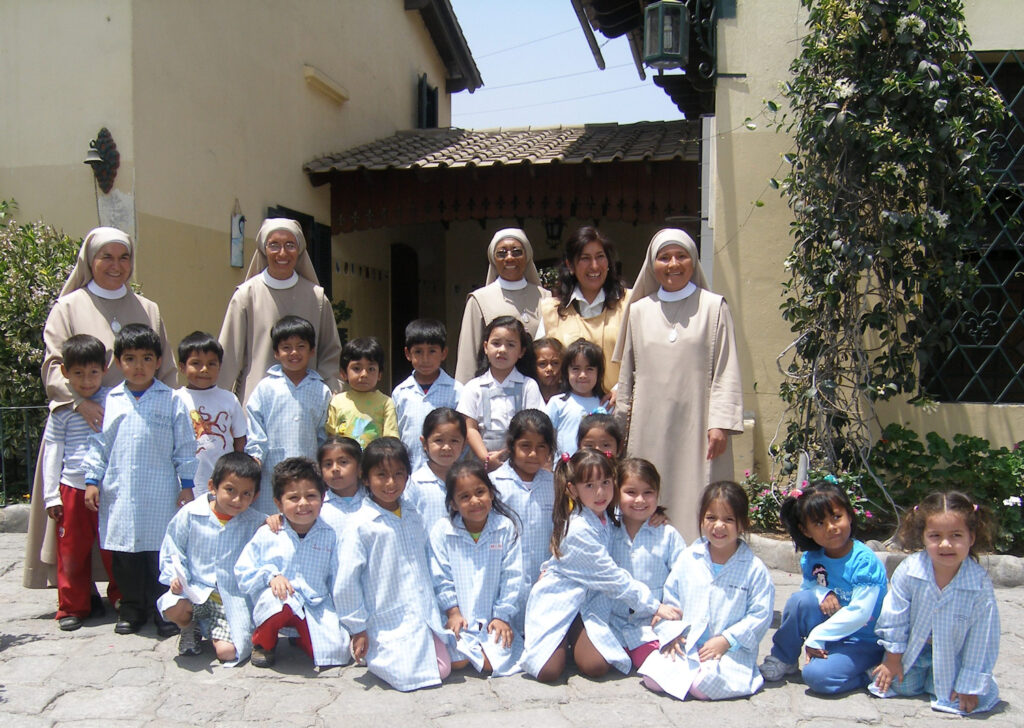
Argentina, El Salvador, Guatemala, Peru The Christian community “Hijas de Santa Maria del Corazón de Jesús” is made up of 663 religious women spread over nine countries. Their commitment is to serve people all over the world. The focus of their work is the education and upbringing of children and young people. They see their responsibility especially in the care and support of those in need. Their goal is for their students to develop a balanced personality that will enable them to live in harmony and responsibly within their families as well as in society. The Limmat Foundation supports the work of the religious sisters in Central as well as South America, i.e. Argentina, El Salvador, Guatemala and Peru. The financial contribution is used for the maintenance of boarding schools and the awarding of full as well as partial scholarships for the education of children from low-income families. Due to their very poor circumstances, they cannot afford access to education for their children themselves. Local partner: Hijas de Santa Maria del Corazón de Jesús MORE PROJECTS Basic medical care for islanders Greece, Medical assistance Home for people with disabilities India, Medical assistance Medical care at Monkole Hospital Democratic Republic of the Congo, Medical assistance Early childhood education training for cognitive disabilities Colombia, Medical assistance Job application workshop for youth with handicap Switzerland, Professional formation Education for socially disadvantaged women India, Professional formation MORE PROJECTS
Integration of former child soldiers into society
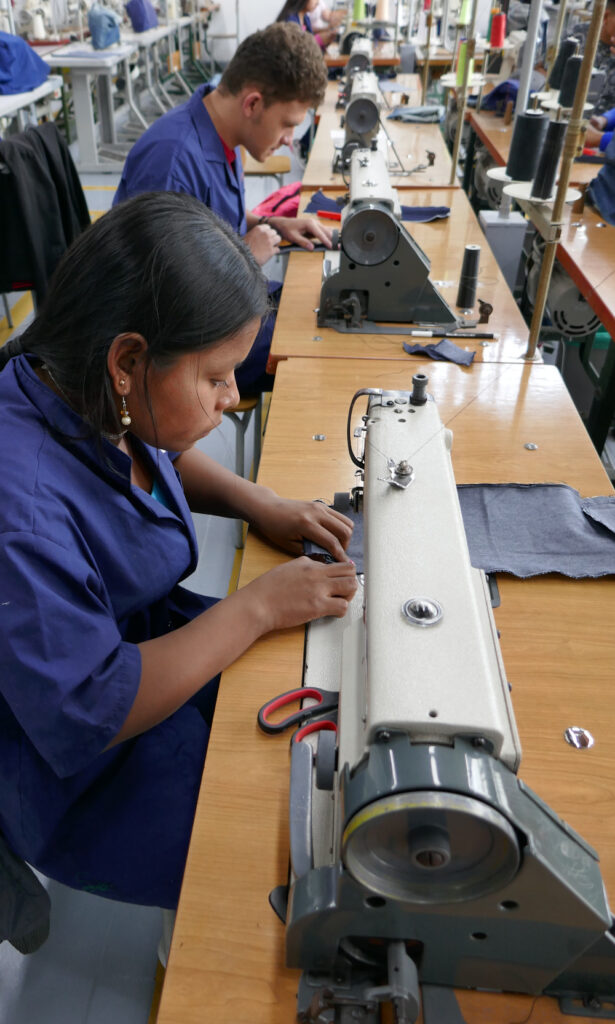
Colombia The “Creating Dreams” program is a role model in Colombia and has been very successful. It is aimed at young people between the ages of 14 and 18 who belonged to armed groups and were involved in the conflict in Colombia. The aim of the project is the successful social, familial and societal reintegration of the participants. In addition, it strengthens the independence of the young people and supports them in improving their living conditions. Since 2003, more than 500 former child soldiers have been integrated into society. With the help of an interdisciplinary team, the youth work through their traumatic experiences. Following the pedagogy of Don Bosco, the staff tries to meet the young people where they are and build relationships of mutual trust. Together, they create a new life plan that positively changes the young people’s self-image. They are encouraged to develop new dreams that push them to start a new life. The inclusion of a youth ministry for discussing worries and fears also plays a central role. Local partner: Don Bosco Jugendhilfe Weltweit MORE PROJECTS Basic medical care for islanders Greece, Medical assistance Home for people with disabilities India, Medical assistance Medical care at Monkole Hospital Democratic Republic of the Congo, Medical assistance Early childhood education training for cognitive disabilities Colombia, Medical assistance Job application workshop for youth with handicap Switzerland, Professional formation Education for socially disadvantaged women India, Professional formation MORE PROJECTS
Saberes
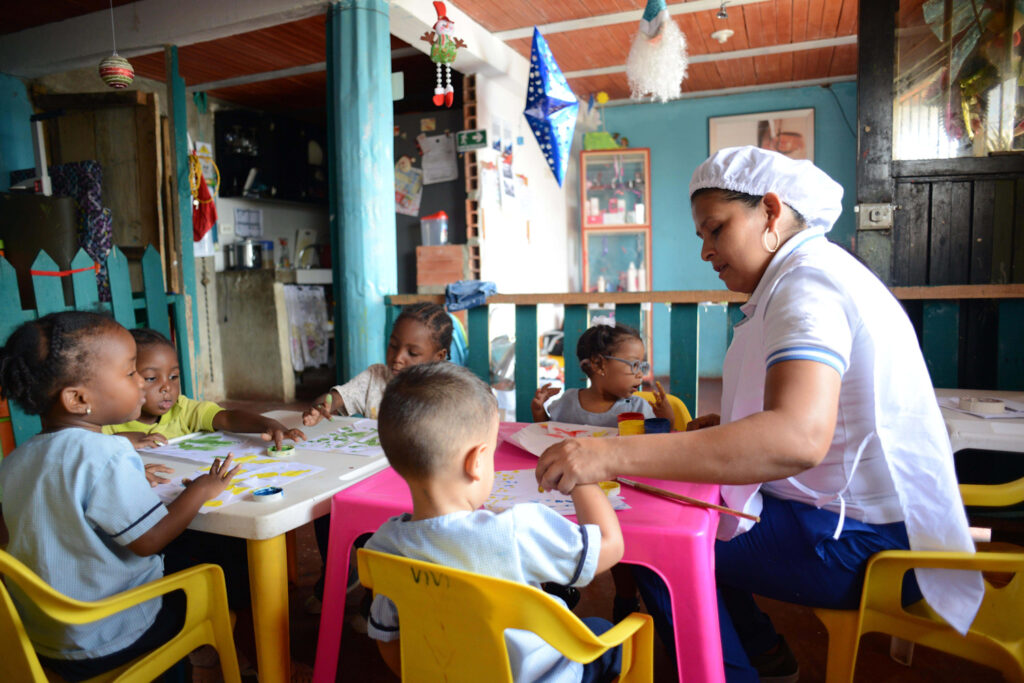
Saberes Colombia In many communities in Colombia, children are cared for by nannies. However, these caregivers have barely completed elementary school education and often have no expertise in dealing with children. In many regions of Colombia, there is no opportunity to obtain quality vocational training in the field of early childhood education. Through the “Saberes” training courses, caregivers learn professional pedagogical interaction with children between the ages of zero to five years in order to provide the children with comprehensive and high-quality care. The goal of the project is for the daycare workers to improve their knowledge and learn how to best support children in the optimal development of their potential. The training program is a total of 200 hours, divided into 70 hours of group training, 80 hours of independent preparation and follow-up, and 50 hours of individual supervision. The participants acquire both pedagogical skills and digital competencies. The “Saberes” program promotes the successful future of children and contributes significantly towards improving their living conditions. Since the begin of the project in 2010, nearly 7,500 educators have been trained through various Saberes programs, benefiting over 480,000 children. Local partner: Fundación Carvajal MORE PROJECTS The current query has no posts. Please make sure you have published items matching your query. MORE PROJECTS
Higher education for socially disadvantaged youth (Sesame)
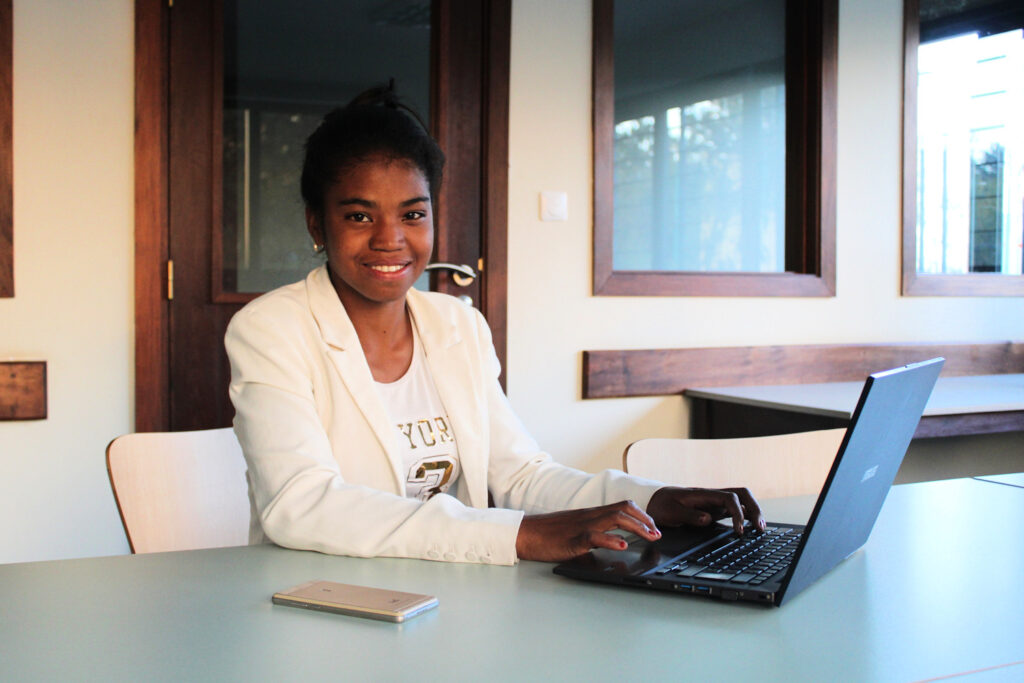
Madagascar Since 2013, the “Sesame” program has pursued the goal of enabling motivated and talented high school graduates from socioeconomically disadvantaged backgrounds in Madagascar to pursue higher education. Normally, only the upper class can afford high-quality education. The “Sesame” initiative promotes the successful integration of less privileged young people into the Malagasy labor market and their active participation in the development of their homeland by awarding scholarships that cover most of their living and school costs. Accommodation is provided in dormitories on campus. The annual selection of students is nationwide. During a preparatory year on the campus in the capital Antananarivo, the youth receive individual mentoring in both academic and personal areas over a period of ten months. The success of the “Sesame” program is reflected not only in the positive feedback from the staff, but above all in the motivated and successful students. 95 percent of the students continue their studies with “Sesame” after the preparatory year at the university of their choice and 80 percent of the young people earn their degrees there. 85 percent of graduates are professionally integrated six months after graduation and, thus, can look forward to a secure future. Local partner: Association Promes and Institut Européen de Coopération et de Développement (IECD) MORE PROJECTS Basic medical care for islanders Greece, Medical assistance Home for people with disabilities India, Medical assistance Medical care at Monkole Hospital Democratic Republic of the Congo, Medical assistance Early childhood education training for cognitive disabilities Colombia, Medical assistance Job application workshop for youth with handicap Switzerland, Professional formation Education for socially disadvantaged women India, Professional formation MORE PROJECTS
Micro Enterprise Development for Women
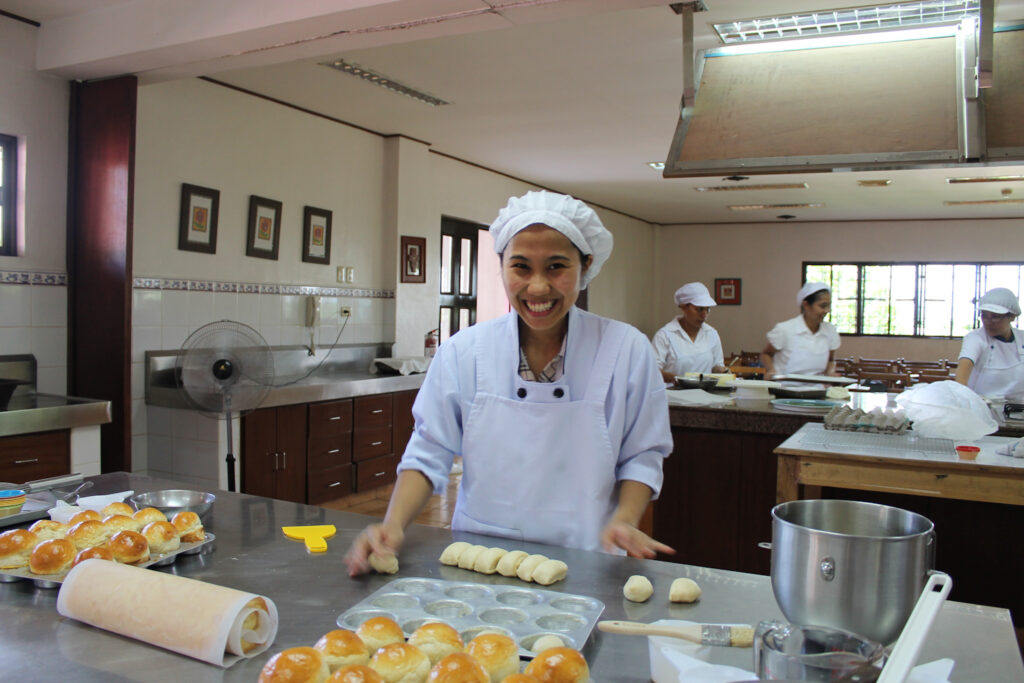
Philippines This vocationally oriented project provides training for 500 women from poor Filipino neighborhoods to become self-employed entrepreneurs every year. The majority of the participants are mothers without vocational training or higher education. They want to further their education in the field of gastronomy, catering and sales in order to improve their family income and pay for their children’s schools. The training includes different topics such as hygiene, bookkeeping, entrepreneurship, price calculation and work organization. Besides, the curriculum also provides for the participants to work on themselves by concretizing their plans and strengthening their self-confidence. Personal advisors assist the women entrepreneurs during the development of their business and prepare them step by step for their new step in the working world. Local partner: Foundation for Professional Training Inc (FPTI) MORE PROJECTS Basic medical care for islanders Greece, Medical assistance Home for people with disabilities India, Medical assistance Medical care at Monkole Hospital Democratic Republic of the Congo, Medical assistance Early childhood education training for cognitive disabilities Colombia, Medical assistance Job application workshop for youth with handicap Switzerland, Professional formation Education for socially disadvantaged women India, Professional formation MORE PROJECTS
Strengthening the parenting skills of refugee parents
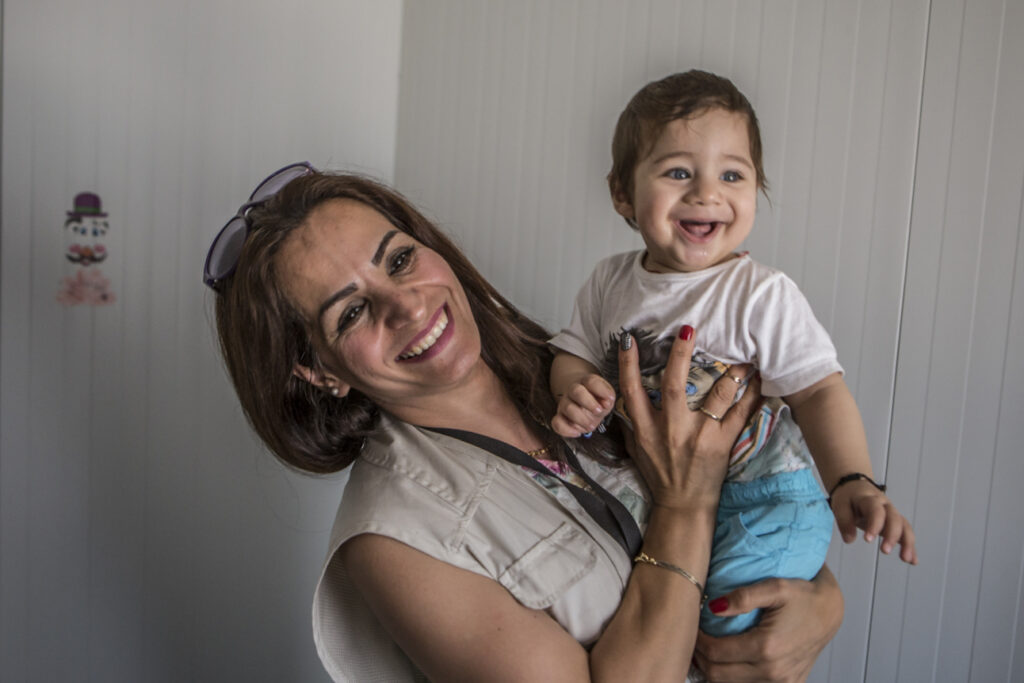
Switzerland The traumatic experiences of fleeing in addition to the foreign environment in asylum shelters are very stressful for many children and difficult to process. This project was launched to support parents who are raising their children under such challenges. Through various educational modules on topics such as “dealing with stress and psychological strain” or “parenting skills”, parents were familiarized as fully as possible with the developmental needs of their children. Likewise, they receive information from experts who educate them on these topics. The success of the project and the gratitude for the multi-faceted training sessions is reflected in the positive feedback from participants. The parents perceive the offerings as supportive and feel that the individual exchange with the staff strengths their role as their children’s first caregiver. Thanks to the valuable information, they adjust to their everyday lives in Switzerland and into the new culture more easily. Local partner: Save the Children MORE PROJECTS Basic medical care for islanders Greece, Medical assistance Home for people with disabilities India, Medical assistance Medical care at Monkole Hospital Democratic Republic of the Congo, Medical assistance Early childhood education training for cognitive disabilities Colombia, Medical assistance Job application workshop for youth with handicap Switzerland, Professional formation Education for socially disadvantaged women India, Professional formation MORE PROJECTS
Promotion of dual training
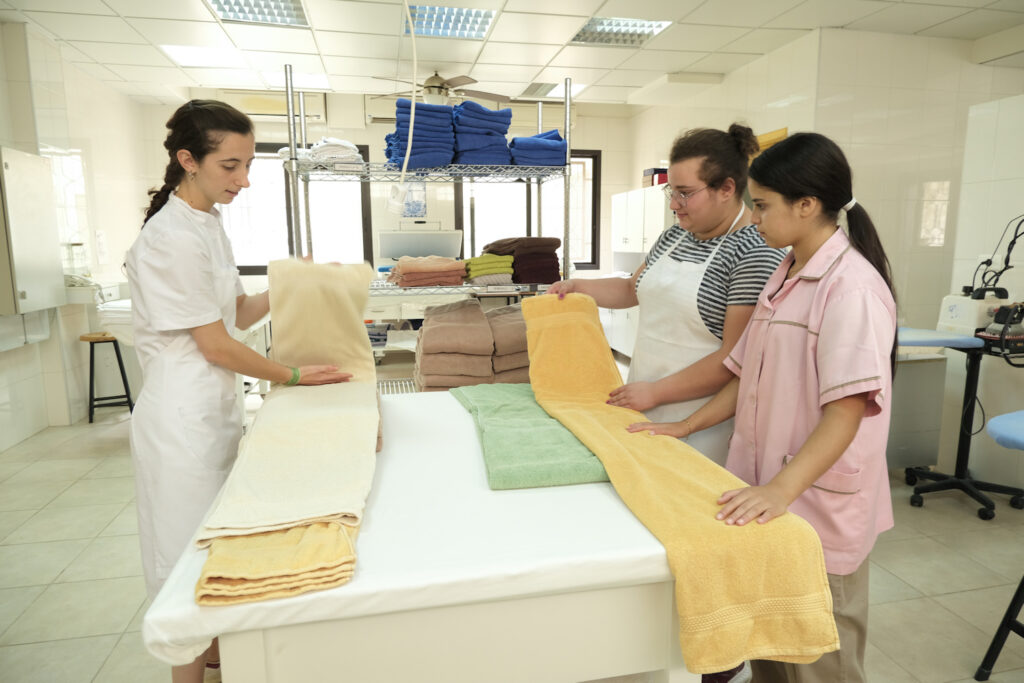
Lebanon To reduce the migration tendency of young Lebanese, the Institute of Management and Services (IMS) has launched an employability project for young women in the tourismand hospitality sector. The organization is motivated to integrate dual vocational training into its hotel operations. To be able to professionally train the learners who are doing an internship there, the staff receives in-depth training. Thanks to the theoretical and practical skills acquired within their dual training, the trainees are more attractive to the companies on the labour market and can better integrate into their working life. Training and counselling in Lebanon are also provided by a staff member of the Swiss competence centre “Desk Hospitality”. Local partner: Institute of Management and Services (IMS) MORE PROJECTS Basic medical care for islanders Greece, Medical assistance Home for people with disabilities India, Medical assistance Medical care at Monkole Hospital Democratic Republic of the Congo, Medical assistance Early childhood education training for cognitive disabilities Colombia, Medical assistance Job application workshop for youth with handicap Switzerland, Professional formation Education for socially disadvantaged women India, Professional formation MORE PROJECTS
Implementation of the dual education system
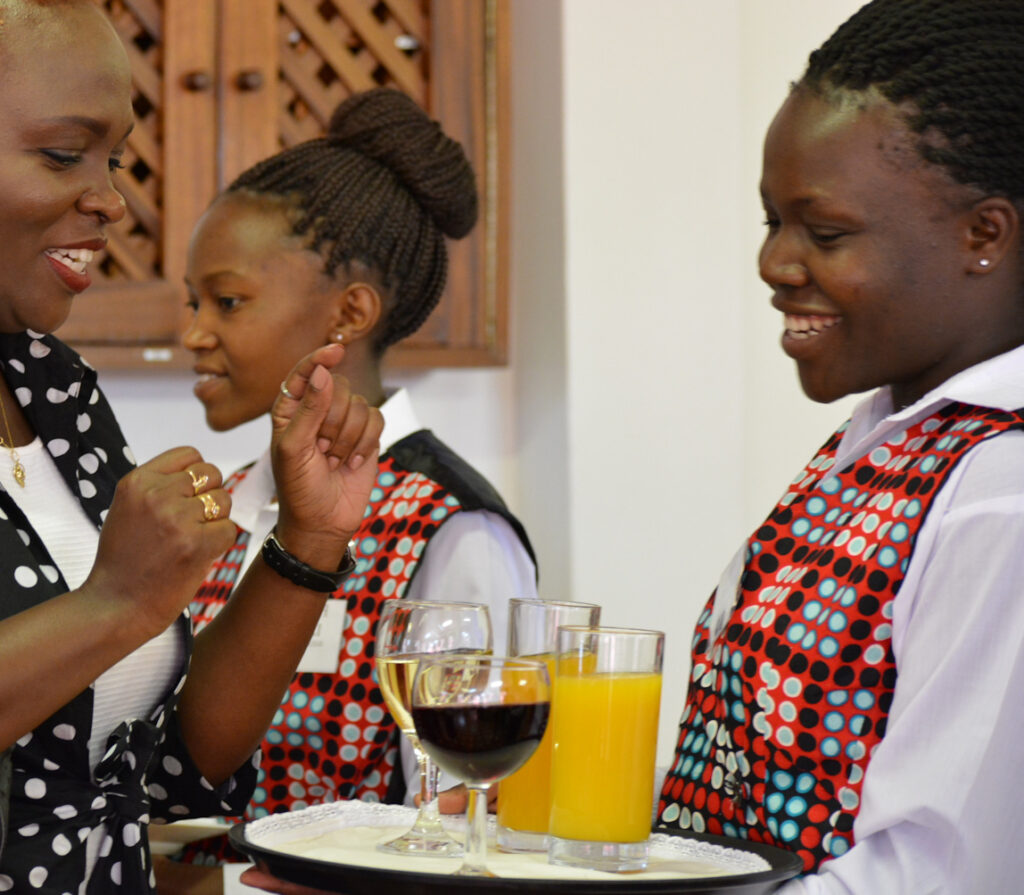
Kenya Within the project “Kibondeni”, courses on the topic of “Organization of service processes in the hotel and catering sector” are offered to support the teachers at vocational schools with the necessary skills to conduct practical training in this sector. The trainers supply the young people with theoretical as well as practical knowledge that qualifies them for their field and enables them to develop their entrepreneurial ideas. The aim is to implement the dual education system. This includes the combination of theoretical modules and practical teaching phases in the company. The process of change to the dual system in Kenya is accompanied by a specialist from the Swiss competence centre “Desk Hospitality”. The main beneficiaries of the “Kibondeni” school are girls from very poor families. With the help of the professional training and the diploma they have acquired, their chances on the labour market increase. Successful employment improves the lives of the students and their families who receive financial support from their daughters. The project “Kibondeni” was initiated by members of Opus Dei. Local partner: Kianda Foundation MORE PROJECTS School education for socially disadvantaged children (Ceres) Madagascar, School education Scholarships for children from low-income families Peru, Argentina, El Salvador, Guatemala, School education Integration of former child soldiers into society Colombia, School education Saberes Colombia, School education Higher education for socially disadvantaged youth (Sesame) Madagascar, School education Micro Enterprise Development for Women Philippines, School education MORE PROJECTS
Education for socially disadvantaged women
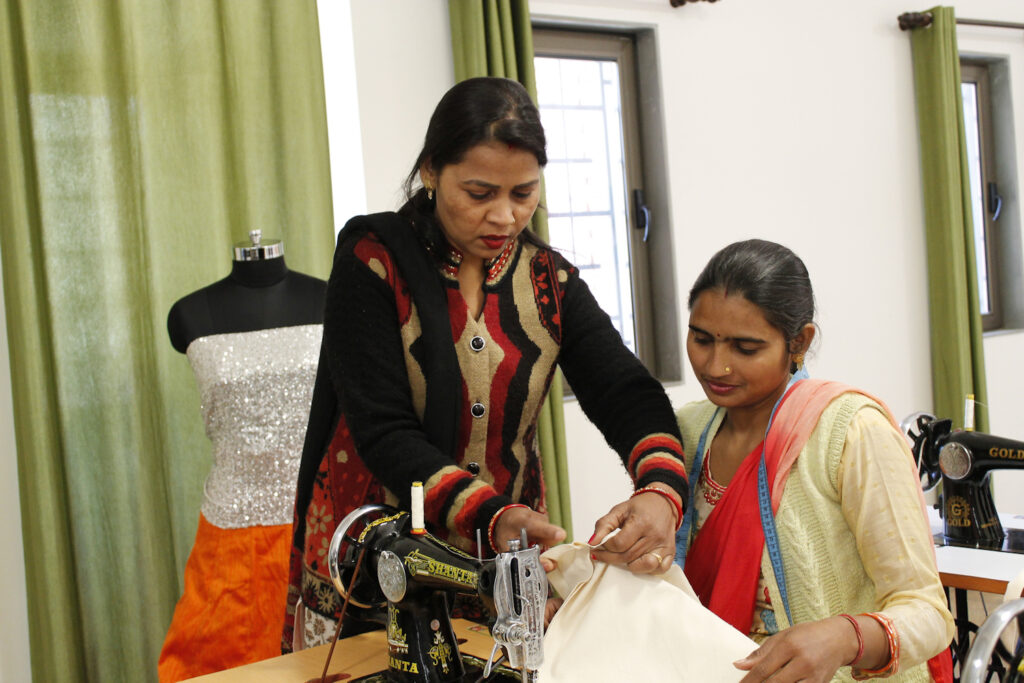
India In many regions of India, even in the 21st century, women cannot work without permission from their husband or father. Education and training are out of reach for many girls. However, the women concerned feel the need to earn their own living in order to contribute to the family’s income. The training centre “Kamalini” pursues the goal of providing vocational training to women from poor backgrounds. In New Delhi, the project offers both adolescent girls and women a basic school education as well as vocational qualifications in textile processing, information technology, gastronomy and housekeeping. In addition, they can take part in English courses, personality and job application training. The beneficiaries are very happy to take advantage of the courses and are grateful for this training which qualifies them for the labour market. Local partner: Educational & Development Initiatives (EDI) MORE PROJECTS Basic medical care for islanders Greece, Medical assistance Home for people with disabilities India, Medical assistance Medical care at Monkole Hospital Democratic Republic of the Congo, Medical assistance Early childhood education training for cognitive disabilities Colombia, Medical assistance Job application workshop for youth with handicap Switzerland, Professional formation Promotion of dual training Lebanon, Professional formation MORE PROJECTS
